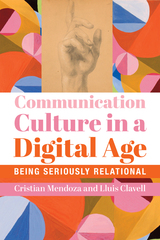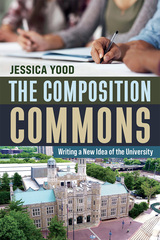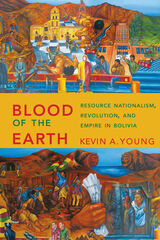
Conflicts over subterranean resources, particularly tin, oil, and natural gas, have driven Bolivian politics for nearly a century. “Resource nationalism”—the conviction that resource wealth should be used for the benefit of the “nation”—has often united otherwise disparate groups, including mineworkers, urban workers, students, war veterans, and middle-class professionals, and propelled an indigenous union leader, Evo Morales, into the presidency in 2006. Blood of the Earth reexamines the Bolivian mobilization around resource nationalism that began in the 1920s, crystallized with the 1952 revolution, and continues into the twenty-first century.
Drawing on a wide array of Bolivian and US sources, Kevin A. Young reveals that Bolivia became a key site in a global battle among economic models, with grassroots coalitions demanding nationalist and egalitarian alternatives to market capitalism. While US-supported moderates within the revolutionary regime were able to defeat more radical forces, Young shows how the political culture of resource nationalism, though often comprising contradictory elements, constrained government actions and galvanized mobilizations against neoliberalism in later decades. His transnational and multilevel approach to the 1952 revolution illuminates the struggles among Bolivian popular sectors, government officials, and foreign powers, as well as the competing currents and visions within Bolivia’s popular political cultures. Offering a fresh appraisal of the Bolivian Revolution, resource nationalism, and the Cold War in Latin America, Blood of the Earth is an ideal case study for understanding the challenges shared by countries across the Global South.
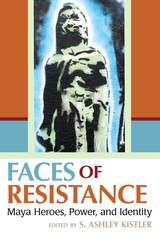
In the sixteenth century, Q’eqchi’ Maya leader Aj Poop B’atz’ changed the course of Q’eqchi’ history by welcoming Spanish invaders to his community in peace to protect his people from almost certain violence. Today, he is revered as a powerful symbol of Q’eqchi’ identity. Aj Poop B’atz’ is only one of many indigenous heroes who has been recognized by Maya in Mexico and Guatemala throughout centuries of subjugation, oppression, and state-sponsored violence.
Faces of Resistance: Maya Heroes, Power, and Identity explores the importance of heroes through the analyses of heroic figures, some controversial and alternative, from the Maya area. Contributors examine stories of hero figures as a primary way through which Maya preserve public memory, fortify their identities, and legitimize their place in their country’s historical and political landscape. Leading anthropologists, linguists, historians, and others incorporate ethnographic, ethnohistoric, and archival material into their chapters, resulting in a uniquely interdisciplinary book for scholars as well as students.
The essays offer the first critical survey of the broad significance of these figures and their stories and the ways that they have been appropriated by national governments to impose repressive political agendas. Related themes include the role of heroic figures in the Maya resurgence movement in Guatemala, contemporary Maya concepts of “hero,” and why some assert that all contemporary Maya are heroes.
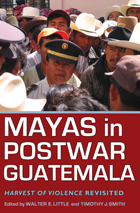
Like the original Harvest of Violence, published in 1988, this volume reveals how the contemporary Mayas contend with crime, political violence, internal community power struggles, and the broader impact of transnational economic and political policies in Guatemala. However, this work, informed by long-term ethnographic fieldwork in Mayan communities and commitment to conducting research in Mayan languages, places current anthropological analyses in relation to Mayan political activism and key Mayan intellectuals' research and criticism. Illustrating specifically how Mayas in this post-war period conceive of their social and political place in Guatemala, Mayas working in factories, fields, and markets, and participating in local, community-level politics provide critiques of the government, the Maya movement, and the general state of insecurity and social and political violence that they continue to face on a daily basis. Their critical assessments and efforts to improve political, social, and economic conditions illustrate their resiliency and positive, nonviolent solutions to Guatemala’s ongoing problems that deserve serious consideration by Guatemalan and US policy makers, international non-government organizations, peace activists, and even academics studying politics, social agency, and the survival of indigenous people.
Walter E. Little is Associate Professor of Anthropology at the University of Albany, SUNY.
Timothy J. Smith is Assistant Professor of Anthropology at the Appalachian State University.
CONTRIBUTORS
Abigail E. Adams / José Oscar Barrera Nuñez / Peter Benson / Barbara Bocek / Jennifer L. Burrell / Robert M. Carmack / Monica DeHart / Edward F. Fischer / Liliana Goldín / Walter E. Little / Judith M. Maxwell / J. Jailey Philpot-Munson / Brenda Rosenbaum / Timothy J. Smith / David Stoll
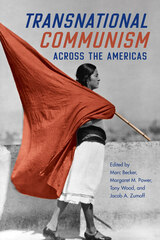
Contributors: Marc Becker, Jacob Blanc, Tanya Harmer, Patricia Harms, Lazar Jeifets, Victor Jeifets, Adriana Petra, Margaret M. Power, Frances Peace Sullivan, Tony Wood, Kevin A. Young, and Jacob Zumoff
READERS
Browse our collection.
PUBLISHERS
See BiblioVault's publisher services.
STUDENT SERVICES
Files for college accessibility offices.
UChicago Accessibility Resources
home | accessibility | search | about | contact us
BiblioVault ® 2001 - 2024
The University of Chicago Press


